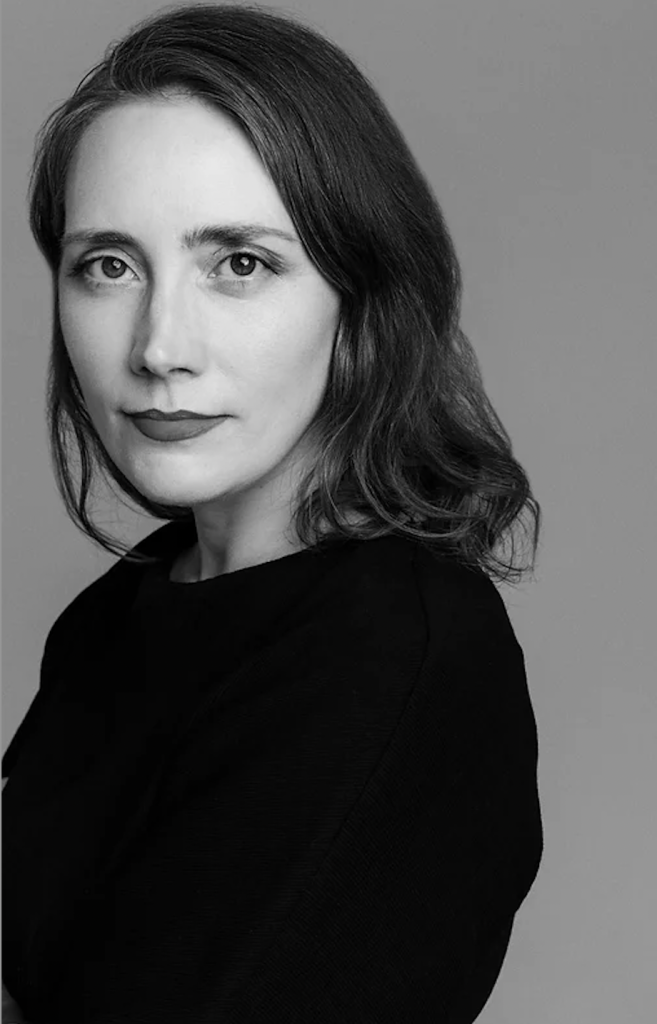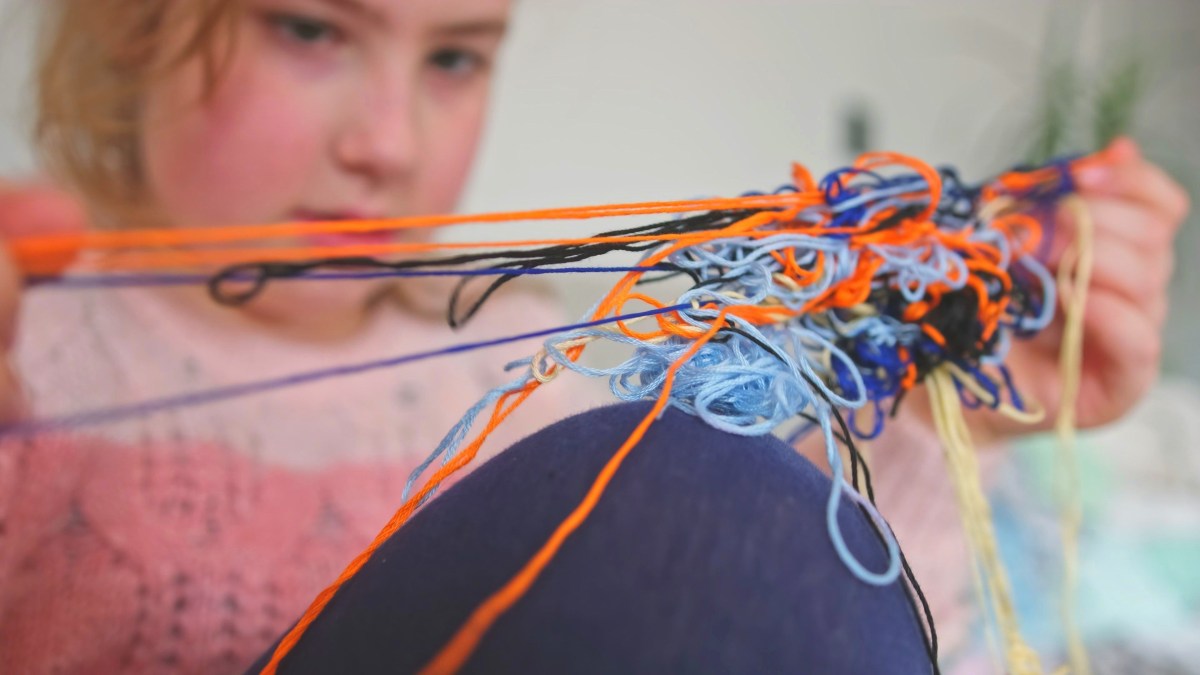Struggling to focus is the chronic condition of our times. It’s no wonder we all feel ‘a little bit ADHD’. But if you, or someone close to you, has been diagnosed with Attention Deficit Hyperactivity Disorder, you’ll know it is a real and complex disability and not a failure of willpower or a form of screen addiction.
ADHD is commonly thought to bring with it some secret superpowers: lateral thinking, creativity, hyperfocus (when the subject is right), and extraordinary productivity right at the last minute. Lists of famous people with ADHD tend to include everyone from Einstein to Leonardo Da Vinci, Justin Timberlake and Mia Freedman.
But filmmaker, writer and creativity coach Briony Kidd is wary of this emphasis on the positives. ‘It takes away from the fact that ADHD is a disability,’ she says. ‘While some people cope really well on their own, a lot of people need ongoing help and support.’
‘We need to accept that ADHD is limiting our capacity in very real ways before we can accept the help that we need,’ she says. ‘It’s similar to the way in which, as artists, we need to accept that the landscape we’re in is difficult and unfair before we can start to advocate for ourselves. While in denial with either of these situations, we are going to continue to make things harder than they actually need to be.’
Kidd says greater awareness and support is key. If a person with ADHD finds themselves in the right kind of work – the right kind of ‘hard’ for their particular interests and capacities – with the necessary supports in place, they can, and often do, flourish and excel in healthy ways.
What is ADHD?
Putting aside arguments about whether ADHD is biological or environmental, people with ADHD struggle with attention, organisation, time management and completing tasks, to such an extent that their lives are often seriously impaired. They’re likely to be familiar with a sense failure and shame about letting down other people (and themselves), again and again.
Yes, neurotypicals feel this way from time to time too. You could even say it’s part of the human condition, but with ADHD it’s chronic and extreme. (On a personal note, I once had a boyfriend who forgot to go to his own 21st birthday party because he was absorbed in making music – not to mention the planes he missed and cars he crashed over the years. We didn’t know much about ADHD in the eighties.)
‘I coulda been a contender,’ says Marlon Brando in the classic film On the Waterfront (1954) – a sentiment with which many with ADHD will identify, according to experts (and ADHD sufferers) Edward M Hallowell MD and John J Ratey MD.
In their 2021 book ADHD 2.0 , Hallowell and Ratey write:
‘We are the problem kid who drives his parents crazy by being totally disorganised, unable to follow through on anything… We are also sometimes the talented executive who keeps falling short due to missed deadlines, forgotten obligations, social faux pas and blown opportunities. Too often we are the addicts, the misfits, the unemployed and the criminals who are just one diagnosis or treatment plan from turning it all around.’

Psychologist Russell Barkley sums up the stark statistics: that having ADHD costs a person nearly 13 years of life on average, and for some it’s much more. This reduced life expectancy has multiple causes. People with ADHD often have trouble maintaining relationships and looking after their health. They find it harder to sleep properly, eat well or exercise regularly and they’re more likely to suffer depression, die by suicide and be involved in accidents of all kinds.
The Australian ADHD Professionals Association (AADPA) estimates that more than a million Australians have ADHD. That’s 6-8% of Australian children and 3-5% of adults. It’s considered of such seriousness that in October 2022, AADPA launched a new evidence-based clinical practice guideline approved by the National Health and Medical Research Council (NHMRC), and called for those affected and their carers to be considered under the National Disability Insurance Scheme (NDIS). A senate inquiry is currently underway as Australia’s health system struggles to cope with demand for diagnosis and treatment, while many specialist ADHD psychologists are not even answering phones anymore.
But Kidd says that getting a diagnosis and medication is not enough to turn things around for many people struggling with ADHD. ‘Medication tends to work best alongside other changes. It can all take a while to figure out.’
Overwhelmed and burnt out
Kidd is perhaps best known as the co-founder of the legendary Stranger with My Face Women International Film Festival in Hobart. Prior to a formal diagnosis two years ago, she had suspected she had ADHD for a few years before that.

‘I was juggling too many artistic projects while trying to make a living in other fields,’ she says. ‘Even managing personal admin felt impossible at times. I was constantly overwhelmed and I had been through several cycles of overcommitting and burning out. I knew that my earlier diagnosis of depression was not correct, because I had finally figured out that the depression was caused by untreated ADHD and all the stress and stigma that goes with that. I knew that I needed to make some changes and get support. But I didn’t know where to start.’
Kidd, by the way doesn’t present as a stereotypical nervy, hyperactive, talkative ADHD sufferer. She’s eloquent and smart, but comes across as super chilled-out, which fits with the realisation that children with ADHD are just as likely to be called ‘dreamy’ as they are to be bouncing off the walls.
‘For many of us the symptoms are largely internal, such as a tendency towards overthinking. A person with ADHD can have a hard time seeing past the complexities of what they need to do in order to get started. Chronic procrastination is common, as is the related problem of perfectionism. There are also deficits in working memory, impulse control and emotional regulation. A diagnosis of ADHD looks at the degree to which these things are debilitating. Long-term, there can be some very poor outcomes for people with unsupported ADHD, so it’s important to understand that it’s not just about having a hard time focusing.’
Painful coping mechanisms
‘ADHD people often have a pattern of working really hard for a few years, working too hard, then burning out and not being capable of doing anything for a while,’ says Kidd. ‘It’s not a pleasant or healthy way to live. But these are the sorts of strategies that people get into when they’re untreated. If you feel like only intense pressure is motivating, for example, you’re going to set up lots of challenging scenarios for yourself.
‘Another way that people find to cope, obviously, is substances. They’re thinking too much, so they have a glass of wine. And then they have too many glasses of wine. Or they’re constantly relying on coffee to get up and going, but that makes them anxious.’
Following her hunch about herself, Kidd joined an ADHD support group – ‘a perfectly valid thing for people to do, even without a diagnosis’ – and learned more from people wrestling with similar issues. Researching the condition, she started to recontextualise a lot of her difficulties in childhood and in her writing career, where she needed deadlines in order to create, and felt like a failure for not emulating the productivity models talked about in writing books.
Many of the key concepts around ADHD culture emerged:
- time blindness – having a different sense of time: Now, and Not-Now, which makes for chronic lateness and forgetfulness.
- the ADHD tax – the costs of overdue fines, missed income and other associated burdens of not functioning in the usual ways.
- Rejection Sensitivity Dysphoria (RSD) – an extreme sensitivity to social rejection and perception of disapproval or failure. (This is not officially part of diagnosis and there is debate about whether this is really a symptom or is in fact a trauma response. This makes sense when you realise that most adults with ADHD have spent a lifetime being told off for being the exasperating way they are.)
- problematic positive thinking – people with ADHD tend to swing between paralysis and impulsivity, and are likely to overestimate how much they can get done in a particular day.
Ongoing support: a coach who gets it
After getting an official diagnosis and treatment from a psychologist specialising in ADHD, Kidd knew that having ongoing support would be important. She searched for a coach but initial experiences were disappointing. She remembers one who spent almost an entire session talking about the importance of a diet rich in leafy green vegetables. Another accountability coach, ‘was kind of like a mum, but not a great mum – a naggy one,’ Kidd says with a laugh.
‘She kept telling me to stop overcommitting myself and do less. That made sense but she was telling me this in a way that was really limiting and depressing. Almost like, “just stop doing all the things that you want to do. Stop being so ambitious and just make yourself quite small, and see if you can go well like that”.
‘And that was unappealing. Maybe if you’re not someone with ADHD, you don’t understand that one of our big motivators is the dopamine and excitement that comes with novelty, so a world where you don’t have any new projects or any new ideas, and you’re just doing some kind of nine-to-five thing that you’re not that interested in, sounds like absolute death. A person with ADHD could live like that for a couple of weeks, but it wouldn’t be sustainable.’
Kidd says that the neurotypical coaches she tried were ‘too much focused on accountability without going into the emotions that were causing me to make unhelpful choices. They were offering surface-level solutions’.
It was only when she started working with a coach who had inside experience with ADHD that Kidd felt understood, respected and fully supported to find her own way of working with, rather than against, her unique ADHD brain.
‘My theory is that those who have lived experience of ADHD are the best coaches for people with ADHD when it comes to managing the difficult emotions of it. For one thing, if they have a successful career and a balanced lifestyle themselves, they are modelling what’s possible. But also there’s a lot of complexity to the ADHD way of being and all our coping mechanisms and traumas and so on,’ says Kidd.
‘Actually, it’s good to have support from both sides. For instance, it may be excellent to see a psychiatrist or psychologist who’s neurotypical. And a lot of people with ADHD work with an assistant who’s highly organised and who can keep them on track in terms of schedule and admin tasks where consistency is important. But when it comes to coaching, a peer relationship could be more helpful. Personally, I like to have a coach who’s on the same journey as I am but who is a bit further along. This makes me feel less judged or less stigmatised when I talk to them. And there’s lots of weird little things they just “get” without needing me to explain. It’s also possible to get something like this from a community that you can belong to, whether through a group coaching program or some kind of informal group. It’s all about finding your people, wherever they may be.’
These days, as well as developing film and theatre projects, contributing to a women in horror educational resource, lecturing and studying for a PhD, Kidd also works as a creative coach specialising in ADHD. She says that even if you don’t have an ADHD diagnosis, the things she’s learned can help people accept and face their own patterns of procrastination, fears of failure and self-loathing about not fitting stereotypical models of productive, self-disciplined creativity.
Kidd says that in some ways, a career as an artist or entrepreneur is ideal for those with ADHD as there’s a lot of day-to-day novelty and you can structure your day and even your entire career in a way that works for you.
‘On the other hand, working alone requires being self-motivated and can be very difficult for someone who struggles to work in a consistent way. So you may have to work with that inconsistency, rather than against it. You need a routine, yes, but maybe your routine has flexibility and novelty built into it, as well as accountability. Maybe you structure in opportunities that will allow you to go with it when you suddenly get into the flow of a task or discover a new way to achieve something. It’s also helpful to consider how factors like medication, sleep, diet and hormonal fluctuations can impact the severity of ADHD symptoms. So an optimal routine could include a lot of rearranging and rescheduling, adjusting on the fly to the capacity that you have on any given day.’
An interest-based nervous system
Kidd says that people with ADHD are said to have an “interest-based nervous system”, which means being driven by passion, curiosity and a sense of being aligned with the task or project, rather than by external rewards.
‘So while a person with ADHD may remind themselves, “I really have to get this project finished by the end of the week or I won’t get paid,” that may not help much in the moment. The dull task feels no less impossible. It will be put off until such a time as the pressure either becomes overwhelming or the person has berated themselves sufficiently, at which point they may finally get it done. But this is not an enjoyable way to operate.
‘Positive motivation techniques tend to be more effective. So that may look like gamifying the process somehow, playing music to get in a good mood or working with a friend. Or it may look like pausing to understand what’s actually going on emotionally, to pinpoint exactly why the task feels so onerous. What it does not look like is ordering yourself to toughen up and “eat the frog”. The motivational strategies that may work for neurotypical people tend to be useless for the ADHD brain.’
Be kind to yourself and ask for help
Ultimately, Kidd’s message to creatives struggling with ADHD – or anyone struggling with motivation and productivity – is to treat yourself with compassion, acceptance and curiosity. ‘Find ways to advocate for yourself and the support you need and don’t be so hard on yourself. Not everything is your fault, and a lot of our problems come from being part of a health system and an economic model that doesn’t allow for much individual difference.
‘My advice to someone who thinks they may have ADHD is to learn as much as they can about how their brain works and what they need to thrive and then start setting up as many external supports as they can. It’s not easy to let go of old coping mechanisms and patterns, but it can be done. The progress may not be linear. Sometimes, post-diagnosis, it may seem for a while that things are getting worse. But gradually, over time, it’s possible to find ways of living and working that are better for you. And that should include things like days off and rest and holidays, which many people with ADHD may never have given a lot of thought to before.’
Strategies and tips for creatives with ADHD
- Research what works for you and accept that your creative process may not look like other people’s.
- Take steps to address time blindness – alarms, reminders, notes.
- Set mini deadlines rather than one big deadline, and find accountability partners, whether it’s a buddy or a coach.
- Find your tribe and create collectives or writers’ groups to encourage, inspire and provide small doses of accountability and deadlines.
- Consider working within some kind of collective or co-working structure, for example, with a shared admin person.
- Be aware of your rejection sensitivities around ‘networking’ and ‘selling yourself’, and find connections and collaborations with peers instead.
Further resources
Briony Kidd’s Creativity Coaching and ADHD Coaching
Russell Barkley’s ADHD factsheet (PDF)
Andrew Huberman – ADHD and how anyone can improve their focus





